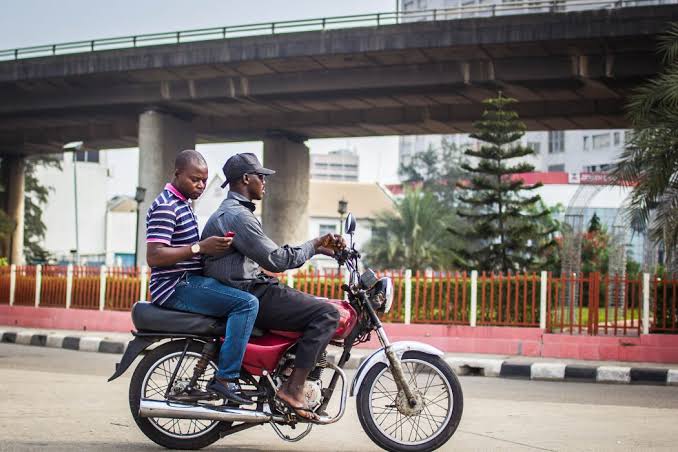In the heart of Ekiti, where motorcycle transport, popularly known as okada, has long been a chaotic yet essential part of daily life, a young startup is seeking to reimagine what it could mean to move safely, transparently, and digitally.
In this edition of Techparley’s DRIVE100, where we spotlight Africa’s most promising and purpose-driven startups, we turn our focus to GboKada founded by Omolayo Kolawole, a rising mobility venture redefining motorcycle transport across Ekiti State, Nigeria
GboKada, a homegrown mobility platform, is leading the shift by providing tech-enabled, accountable, and secure motorcycle transportation for residents and riders alike.
It’s a local innovation born not out of Silicon Valley’s luxury, but out of the urgent need for safety, structure, and trust in Nigeria’s unregulated transport culture.
“We’re not just building another ride-hailing app,” says Omolayo Kolawole, GboKada’s Project Director and CEO. “We’re creating a system where both riders and passengers can trust the process, from trip to payment to safety.”
Taming the Chaos: The Transport Problem GboKada is Solving
In many Nigerian towns, informal motorcycle transport remains both a lifeline and a liability. Commuters depend on okadas for fast movement through narrow roads, but the absence of structure makes it risky.
Riders are often unverified, accountability is almost nonexistent, and safety measures are ignored.
In Ekiti, where transportation infrastructure is modest, these challenges are even more pronounced. Passengers risk unsafe rides, riders face harassment from unions and authorities, and there’s little transparency in how trips are managed or how earnings are shared.
GboKada’s intervention is timely. The startup introduces a system that replaces uncertainty with accountability. Every trip is recorded, every rider is registered and verified, and passengers can now move knowing their journey is monitored and secured.
This blend of local understanding and digital enforcement offers a new model of organized transport, one that prioritizes both community and technology.
How the Platform Works: From App to Asphalt
At its heart, GboKada isn’t just a mobility app, it’s an ecosystem of structure and safety. The platform manages every trip, transaction, and participant within a digital environment that’s as transparent as it is functional.
Key features include:
- Secure trip monitoring: Every ride is digitally logged, allowing both user and admin oversight. This deters misconduct and builds trust.
- Verified riders: Only riders who meet identity, background, and documentation checks can operate on the platform.
- Confidentiality protocols: Personal data and trip information are treated with strict privacy standards, addressing the common fear of exposure.
- Transparent earning model: Riders earn 70% of every fare, while GboKada retains 30%. This ensures predictability, fairness, and financial motivation.
- Safety-first operation: The use of helmets, reflective jackets, and safety checks are non-negotiable.
The benefits extend beyond safety, GboKada is also redefining professionalism among local riders. What was once seen as a low-tier hustle is becoming a recognized and structured occupation.
The GboKada Difference: Structure Meets Sustainability
While many ride-hailing platforms in Nigeria chase rapid expansion, GboKada’s focus remains depth before scale, establishing solid local credibility before expansion.
The startup thrives on discipline, verification, and controlled operations, three things largely missing in the unregulated okada culture.
Its uniqueness lies in its context-driven design. GboKada isn’t importing a foreign model; it’s building from the ground up, based on Ekiti’s lived realities.
Its only real competitors are the informal okada riders, but by offering a safer, trackable, and fairer system, GboKada is slowly converting skeptics into partners.
“The idea isn’t to replace local transport,” Omolayo explains, “but to formalize it, to show that technology can work in the service of community needs.”
This approach not only secures user confidence but also strengthens the local economy by formalizing informal labor and creating a culture of responsibility among transport operators.
Behind the Handlebars: Meet the GboKada Team
Every successful startup begins with a dedicated team that believes in its mission. At GboKada, leadership is compact but strategically layered.
Omolayo Kolawole, who doubles as CEO and technical lead, drives both the innovation and infrastructure powering the system.
Supporting him is Oluwatobi Isaac Omolayo, who oversees strategy and administration, ensuring that operations stay aligned with business goals and regulations.
Olumide Adeniyi anchors field operations, managing rider onboarding, compliance, and safety standards. Meanwhile, Oluyede Timileyin, a young intern, maintains the documentation and verification processes that keep the system running smoothly.
It’s a small team with a large ambition, proving that with clarity, discipline, and a sense of mission, local startups can achieve structural impact even without massive funding.
Roadblocks and Resilience: Navigating Nigeria’s Transport Realities
GboKada’s journey hasn’t been without bumps. The platform has faced union resistance, as traditional okada networks often perceive digital platforms as threats.
Added to that are police disruptions targeting riders without clear identification, and government levies that challenge the thin profit margins of small transport startups.
Instead of confrontation, GboKada has chosen collaboration. The team engages unions in open dialogue, explaining the long-term benefits of digital structure for all.
They’re formalizing rider documentation to prevent harassment and working with local authorities to obtain proper permits.
This mix of diplomacy and adaptability has helped the startup earn community trust, which could prove more valuable than venture capital in the long run.
As Omolayo puts it, “To build in Nigeria, you don’t just need tech, you need patience, paperwork, and partnerships.”
From Ekiti to Everywhere: The Expansion Vision
For now, GboKada is focused on perfecting its system within Ekiti State, ensuring reliability before scaling.
Over the next 6 to 12 months, the priority is to stabilize operations, grow the rider network, and strengthen partnerships with unions and regulators.
Within two years, GboKada aims to expand across Ekiti, introducing structured transport standards across local councils. In three years, the startup plans to improve its digital infrastructure, integrating advanced security and AI-powered route analytics.
By five years, the vision is clear, to become fully woven into Ekiti’s transport ecosystem, operating as a model for regulated motorcycle mobility in Nigeria.
Talking Points
GboKada, to me, represents the true pulse of grassroots innovation, a reminder that transformative technology doesn’t always have to be born in the big cities or funded by millions of dollars.
What makes it remarkable is its courage to organize chaos through structure, empathy, and local understanding. It’s not just solving a transport problem in Ekiti; it’s redefining what accountability and digital inclusion can look like when built from the community upward.
By merging safety, trust, and technology in such a relatable way, GboKada sets a tone for how small, purposeful startups can spark meaningful change in Africa’s mobility landscape.
If it sustains its vision with discipline and genuine partnership, it could grow beyond being just a ride-hailing platform to becoming a lasting model for local innovation that prioritizes people over profit, and that’s the kind of impact that endures.
___________________
Bookmark Techparley.com for the most insightful technology news from the African continent.
Follow us on X/Twitter @Techparleynews, on Facebook at Techparley Africa, on LinkedIn at Techparley Africa, or on Instagram at Techparleynews







